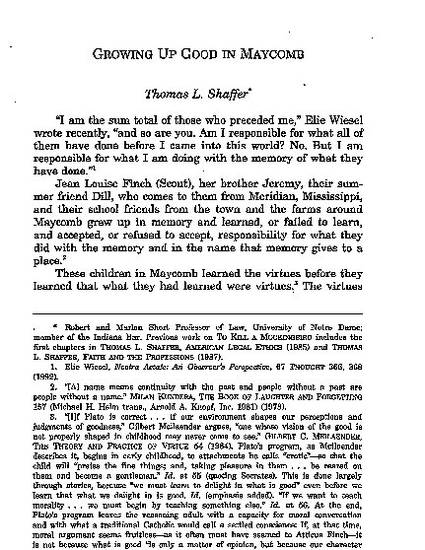
"I am the sum total of those who preceded me," Elie Wiesel wrote recently, "and so are you. Am I responsible for what all of them have done before I came into this world? No. But I am responsible for what I am doing with the memory of what they have done."
Jean Louise Finch (Scout), her brother Jeremy, their summer friend Dill, who comes to them from Meridian, Mississippi, and their school friends from the town and the farms around Maycomb grew up in memory and learned, or failed to learn, and accepted, or refused to accept, responsibility for what they did with the memory and in the name that memory gives to a place.
These children in Maycomb learned the virtues before they learned that what they had learned were virtues. The virtues they learned were virtues formed in the memory and in the name that the memory gives to a place. They grew up good in Maycomb. Their childhood story, told in large part as a story about their father Atticus, is about growing up in virtue. The epigraph Harper Lee chose for the novel is from Charles Lamb: "Lawyers, I suppose, were children once." And the dedication of the novel is to Miss Lee's father, a Monroeville lawyer ("to Mr. Lee"), and to her sister, who became a lawyer' ("and Alice"), and it is framed as if it were copied from a warranty deed in Atticus Finch's law office ("in consideration of Love & Affection").
Available at: http://works.bepress.com/thomas_shaffer/54/

Reprinted with permission of Alabama Law Review.